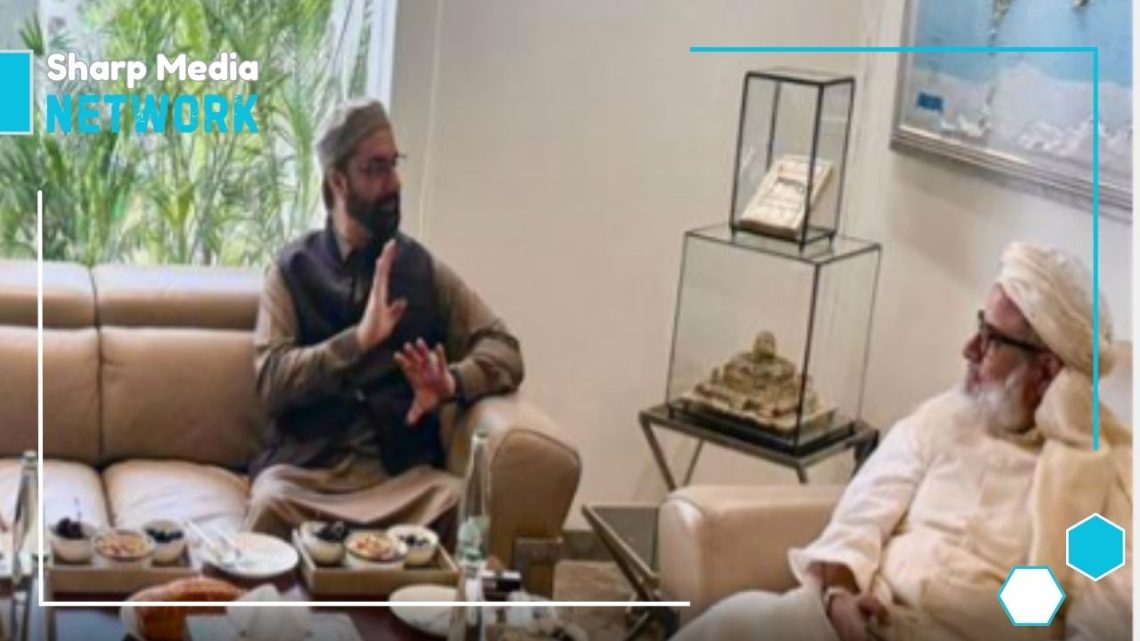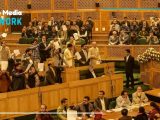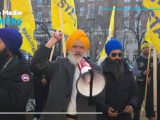
Mirwaiz Umar Farooq Meets Maulana Syed Mahmood Madani to Discuss Waqf Amendment Bill
January 27, 2025In a crucial meeting in New Delhi, Mirwaiz Umar Farooq, a key leader of the All Parties Hurriyat Conference, and Maulana Syed Mahmood Madani, President of Jamiat Ulema-e-Hind, came together to discuss the implications of the controversial Waqf Amendment Bill and its potential impact on the Muslim community.
In New Delhi today, senior leader of the All Parties Hurriyat Conference (APHC), Mirwaiz Umar Farooq, met with Maulana Syed Mahmood Madani, President of Jamiat Ulema-e-Hind. The meeting, which was also attended by Maulana Rahmatullah Mir Qasmi, a prominent Islamic scholar and head of Darul Uloom Rahimiya Bandipora, focused on concerns surrounding the Waqf Amendment Bill, a piece of legislation that has raised alarm within the Muslim community across India.
The leaders expressed serious reservations about the bill, particularly its potential to undermine the autonomy of Waqf institutions and interfere with the administration of Waqf properties. Waqf properties, which are traditionally managed by religious and community organizations, have always played an essential role in the welfare of the Muslim community. The Waqf Amendment Bill has been viewed by some as a means for greater government control over these institutions, which could affect their management and usage for community purposes.
Mirwaiz Umar Farooq emphasized the critical need to protect the rights and interests of these institutions, which are vital to the cultural, religious, and social fabric of the Muslim community. The meeting reflected growing concerns that the bill could alter the nature of Waqf governance and its long-standing role in serving community welfare.
During the meeting, Mirwaiz also took the opportunity to update Maulana Madani on the current situation in Indian Illegally Occupied Jammu and Kashmir (IIOJK). The political climate in the region remains tense, especially in light of the revocation of Article 370 and the subsequent downgrading of the region’s status. Mirwaiz’s briefing underscored the continued human rights violations and political unrest in IIOJK, which have been compounded by economic hardships and a deep sense of disenfranchisement among the Kashmiri people.
The exchange of views was seen as a crucial moment for raising awareness about the ongoing struggles in IIOJK while connecting them to broader Muslim concerns in India, including issues such as the Waqf Amendment Bill.
Mirwaiz Umar Farooq, who is currently in Delhi, plans to meet with other prominent religious and political figures to discuss these concerns further. His ongoing efforts are aimed at addressing the potential impact of the Waqf Amendment Bill on Muslim rights and ensuring that the voices of the Muslim community are heard in the Indian political sphere.
The meeting with Maulana Madani is part of a broader effort by Mirwaiz to keep Muslim leaders and organizations informed about the deteriorating situation in IIOJK and to mobilize support for the preservation of Waqf rights. The discussions are also seen as a step towards uniting different religious and political voices to safeguard the interests of Muslims in India.
The meeting between Mirwaiz Umar Farooq and Maulana Syed Mahmood Madani highlights the growing concerns over the Waqf Amendment Bill and its potential implications for Muslim institutions in India. As the political situation in Indian Illegally Occupied Jammu and Kashmir continues to evolve, leaders like Mirwaiz are working tirelessly to ensure that the rights of the Muslim community are defended and their concerns are brought to the forefront of national discussions.

